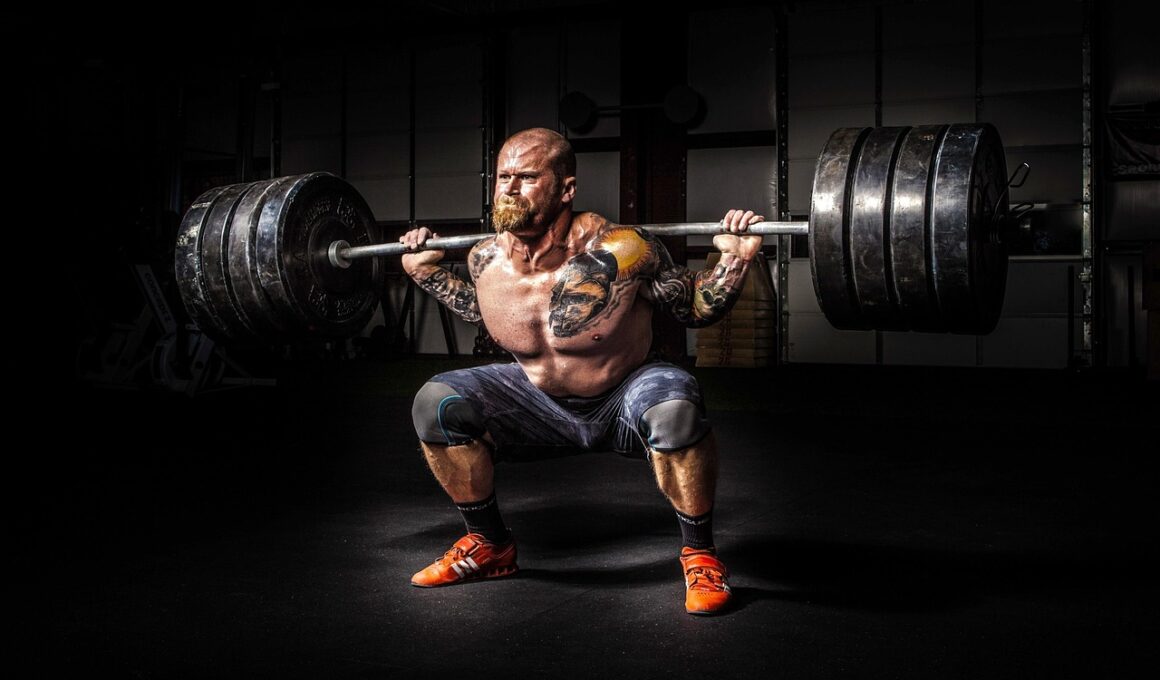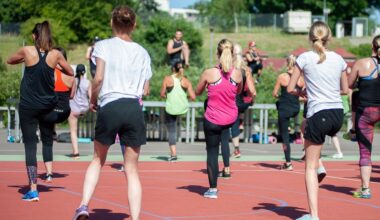Exploring Non-Traditional Sponsorship Opportunities in Bodybuilding
In recent years, bodybuilding competitions have evolved significantly, creating a variety of non-traditional sponsorship opportunities. This shift allows smaller companies, local businesses, and even non-endemic brands to make a mark in the bodybuilding community. As athletes seek new, innovative ways to finance their training and competitions, sponsorship deals can include numerous avenues beyond the usual supplement brands. Some of these may include health food companies, fitness technology brands, or even lifestyle apparel. The key for brands and athletes is to align their goals and values closely to create successful partnerships. As sponsorship is crucial for athletes to thrive, understanding the landscape can help them discover unique opportunities. A brand can utilize the passion of these athletes to reach specific target demographics. Moreover, athletes with strong personal brands not only appeal to fans but also to companies seeking authentic connections. Evolving the sponsorship model could include platforms that leverage influencer marketing, personal branding workshops, and building engaging content that showcases these partnerships effectively. Partnerships need visibility and creativity for success, which can yield lucrative returns for both parties involved in these collaborative efforts.
Unique Approaches to Sponsorship Deals
Another critical aspect of non-traditional sponsorship opportunities is fostering unique approaches to deal structuring. Athletes and brands can explore unconventional agreements that combine financial support with promotional strategies. For instance, experiential marketing can be a powerful way for brands to get involved without solely providing funds. This might involve hosting local events, workshops, or fitness clinics to engage with the audience directly while promoting the athlete’s accomplishments and training. Further strategies include product collaborations where athletes co-create a product line, offering them a stake in the profits. Additionally, some sponsors can opt for performance-based contracts, wherein payment is contingent upon athletes achieving specific goals. This model incentivizes athletes and allows brands to pay based on results. Social media campaigns can be tailored to create buzz around competitions or events that athletes participate in, increasing both visibility and engagement. By innovating how sponsorship deals are approached, athletes and brands can create an ecosystem that works for both parties while promoting a stronger brand affiliation that resonates with audiences and fans alike.
Leveraging digital platforms for sponsorship opportunities adds another layer of complexity in bodybuilding. Social media and online engagement are essential for modern athletes looking to attract potential sponsors. Platforms like Instagram, YouTube, and TikTok allow athletes to showcase their training routines, competition experiences, and sponsors’ products authentically. The creation of high-quality content that engages followers can catch the attention of brands looking to tap into niche markets. By building a solid personal brand online, athletes can demonstrate their influence as trendsetters in the fitness community, which is attractive to sponsors. Brands gain a voice through these athletes’ platforms, reaching audiences previously hard to engage. Athletes are encouraged to create comprehensive media kits showcasing demographic statistics, audience engagement levels, and previous successes. Activating their audience behind their sponsors entails tagging partners in posts, using branded hashtags, or even participating in collaborative challenges. Furthermore, live broadcasting competition participations creates real-time engagement for sponsors. These efforts not only expand their reach but also solidify their value as potential investment opportunities for brands keen on growth in the burgeoning fitness sector.
Cross-Industry Collaborations
Cross-industry collaborations emerge as a compelling method to enhance sponsorship opportunities within bodybuilding. By reaching out beyond the fitness and health sectors, athletes can explore partnerships with brands focusing on technology, fashion, and lifestyle. For example, collaborations with tech companies introducing wearable fitness gadgets or applications can boost visibility for both athletes and brands while educating the audience on effective routines. Additionally, partnerships with fashion brands can generate engagement through sponsorship at bodybuilding events, capitalizing on the publicity of impressive physiques. These collaborations can result in unique promotional events, highlighting the brand’s commitment towards health and fitness. Mutual benefit can stem from innovating how and where these brands are marketed, weaving the athlete’s narrative and values into company campaigns. Uniting champions of fitness with diverse industries opens avenues for powerful campaigns that capture wider audiences. Integrating storytelling about journeys towards success creates authentic connections, making the partnership relatable and inspiring. Social responsibility might involve participating in campaigns focused on mental health, nutrition, or community wellness initiatives, empowering athletes to serve as brand ambassadors while positively impacting networks around them.
Community-oriented sponsorship programs represent one of the most influential non-traditional opportunities athletes can explore. By establishing partnerships with local businesses, athletes can not only receive financial support but also strengthen community engagement and loyalty. Collaborating with nearby gyms, health food cafes, and wellness centers allows for a localized approach to sponsorship, fostering positive relationships. Implementing community events, like training camps or charity matches, enhances visibility while promoting healthy living. As athletes support local enterprises, they build a robust support network, encouraging community members to invest in their journey. These initiatives can often have lasting impacts that help establish the athlete’s presence beyond competition. Interaction with the community can cultivate dedicated fan bases who are more likely to attend events and purchase products endorsed. Sponsorship tied with community projects often resonates deeply with audiences, resulting in stronger emotional connections. Brands investing in community-driven efforts can position themselves as stakeholders in the athlete’s success and future. Furthermore, showcasing these partnerships can elevate visibility and support for both the athlete and the businesses involved, creating a win-win situation ensuring longevity in the sponsorship landscape.
Utilizing Eco-Friendly Partnerships
In today’s environmentally-conscious society, cultivating eco-friendly partnerships emerges as an exciting area for sponsorship opportunities in bodybuilding. Athletes can align with brands committed to sustainable practices, thus attracting environmentally aware consumers. Engaging with companies that produce organic, sustainable products not only aligns athletes with these goals but elevates their personal brand and ethos. For example, organic supplement companies, eco-friendly apparel manufacturers, or sustainable food brands are excellent sponsorship potential candidates. By embracing this movement, athletes can contribute positively to environmental initiatives and drive consumer awareness. Incorporating green practices through shared marketing strategies, athletes can promote these brands while reinforcing their contributions to a sustainable future. Additionally, partnering with companies engaged in outcomes-based initiatives, such as planting trees for every product sold, resonates well with audiences familiar with environmental issues. This commitment creates brand loyalty and showcases the personability of the athlete involved. Furthermore, campaigns emphasizing eco-friendly messages reflect a responsible and mature brand image. Such partnerships can have substantial reach, inspiring followers to adopt similar values, ultimately expanding market opportunities in the process.
Finally, as the competitive landscape evolves, understanding the changing dynamics of bodybuilding sponsorship can lead to innovative collaborations that benefit all. Traditional sponsorship approaches have served their purpose; however, the future relies on new strategies that engage audiences meaningfully and financially. Exploring non-traditional sponsorship opportunities requires creativity and willingness to adapt to market trends. Athletes must be proactive in their pursuit of non-traditional deals by diversifying their interests and showcasing their individual talents. Understanding what resonates with your audience, aligning with brands that share similar values, and leveraging various digital platforms can drive engagement. The emphasis should not only be on capital but on mutual growth, community-building, and ethical practices. As more industries explore the bodybuilding sector, collaboration opportunities will grow. This transition ensures athletes have the support they need to succeed while helping brands tap into an enthusiastic consumer base. The marriage of fitness and innovative sponsorship will undoubtedly reshape the future of bodybuilding competitions, leading to a vibrant ecosystem where everyone involved thrives.





